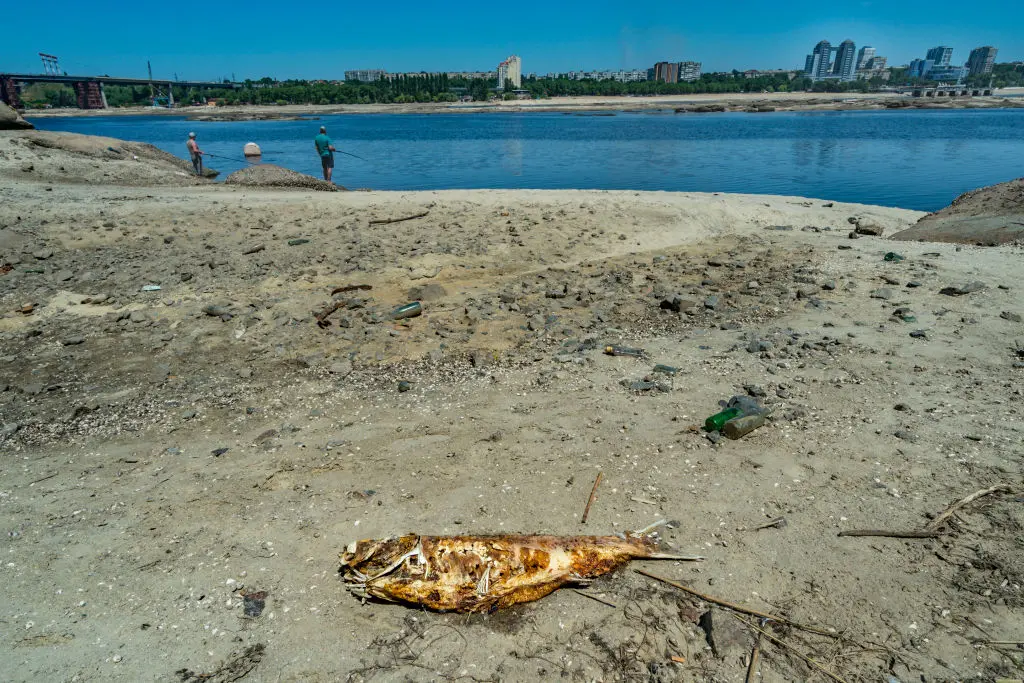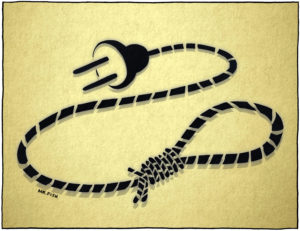The EU Passes Landmark Law Criminalizing Ecocide
Advocates hope that the EU’s move will have influence beyond Europe’s borders. Celestino Arce / Getty Images via Grist
Celestino Arce / Getty Images via Grist
An illegal toxic dump site in Croatia, the theft of water from a major aquifer in southern Spain, illegal trading of ozone-depleting refrigerants in France: This is just a sampling of the environmental crimes that European countries are struggling to stop. The lack of accountability for these acts stems in part from the European Union’s legal code, which experts say is riddled with vague definitions and gaps in enforcement. That’s about to change.
Last week, EU lawmakers voted in a new directive that criminalizes cases of environmental damage “comparable to ecocide,” a term broadly defined as the severe, widespread, and long-term destruction of the natural world. Advocates called the move “revolutionary,” both because it sets strict penalties for violators, including up to a decade in jail, and because it marks the first time that an international body has created a legal pathway for the prosecution of ecocide.
“This decision marks the end of impunity for environmental criminals and could usher in a new age of environmental litigation in Europe,” wrote Marie Toussaint, a French lawyer and EU parliamentarian for the Greens/European Free Alliance group, on X.
“This decision marks the end of impunity for environmental criminals and could usher in a new age of environmental litigation in Europe.”
Environmental crime is estimated to be the fourth most lucrative illegal activity in the world, worth an estimated $258 billion annually, and it’s increasing every year, according to the United Nations Environment Programme and the International Criminal Police Organization, known as Interpol. Environmental offenses are often linked to other forms of organized crime, such as smuggling and money laundering.
The new directive uses the term “ecocide” in its preamble, but does not criminalize the act by laying out a legal definition. (The most widely accepted definition of ecocide was developed by an international panel of experts in 2021.) Instead, it works by providing a list of “qualified offenses,” or crimes that fall within its purview. These include pollution from ships, the introduction of invasive species, and ozone depletion.
This list is “broad but by no means exhaustive,” said Jojo Mehta, a U.K.-based environmental advocate and co-founder of the campaign Stop Ecocide, in an email. The directive makes no mention of, for instance, illegal fishing and carbon market fraud. “Within hours of the news breaking, we were being emailed by a range of civil society actors asking ‘but will such-and-such damage be covered?’” she added.
The new law holds people liable for environmental destruction if they acted with knowledge of the damage their actions would cause. This aspect of the law is important, experts said, because it means that a permit is no longer enough for a company to avoid culpability.
“If new information shows that behavior is causing irreversible damage to health and nature, you will have to stop,” a member of the European Parliament from the Netherlands, Antonius Manders, told Euronews.
Advocates like Mehta hope that the EU’s move will have influence beyond Europe’s borders. The principal goal of the Stop Ecocide campaign is for the International Criminal Court, or ICC, to designate ecocide as the fifth international crime that it prosecutes, after crimes against humanity, war crimes, crimes of aggression, and genocide. At the moment, environmental destruction can only be prosecuted as a war crime at the ICC, and limitations in the law make this extremely difficult to do.
The new law holds people liable for environmental destruction if they acted with knowledge of the damage their actions would cause.
The campaign has drawn a diverse group of supporters. The small island of Vanuatu has called for the international criminalization of ecocide as a means of limiting climate warming emissions, while the Ukrainian government has argued for using it as a tool to hold individuals accountable for environmental destruction in wartime. The latter’s calls escalated last summer after Russia destroyed the Kakhovka Dam in southern Ukraine, flooding over 230 square miles, killing scores of people, and spreading chemical pollution across the land.
Kate Mackintosh, the executive director of the Netherlands-based UCLA Law Promise Institute Europe, told Grist that the ICC is unlikely to adopt an ecocide law if other countries do not do so first.
“It’s not something you can just pull out of thin air,” she said, adding that any international legal doctrine has to have a precedent on the national level. “That’s the way states are going to accept it.”
The EU’s 27 member states will have two years to adapt the new legislation into their penal codes. Afterwards, their implementation must be reviewed and updated at least once every five years using a “risk-analysis based approach,” to account for advancements in experts’ understanding of what might constitute an environmental crime. Mehta said that despite its omission of some important offenses, the law sets an important example for other countries. Several days before the EU vote, Belgium adapted its criminal code to include the directive, making it the first country in Europe to recognize ecocide as a crime.
The ruling “shows leadership and compassion,” Mehta said. “It will establish a clear moral as well as legal ‘red line’, creating an essential steer for European industry leaders and policymakers going forward.”
Your support matters…Independent journalism is under threat and overshadowed by heavily funded mainstream media.
You can help level the playing field. Become a member.
Your tax-deductible contribution keeps us digging beneath the headlines to give you thought-provoking, investigative reporting and analysis that unearths what's really happening- without compromise.
Give today to support our courageous, independent journalists.






You need to be a supporter to comment.
There are currently no responses to this article.
Be the first to respond.